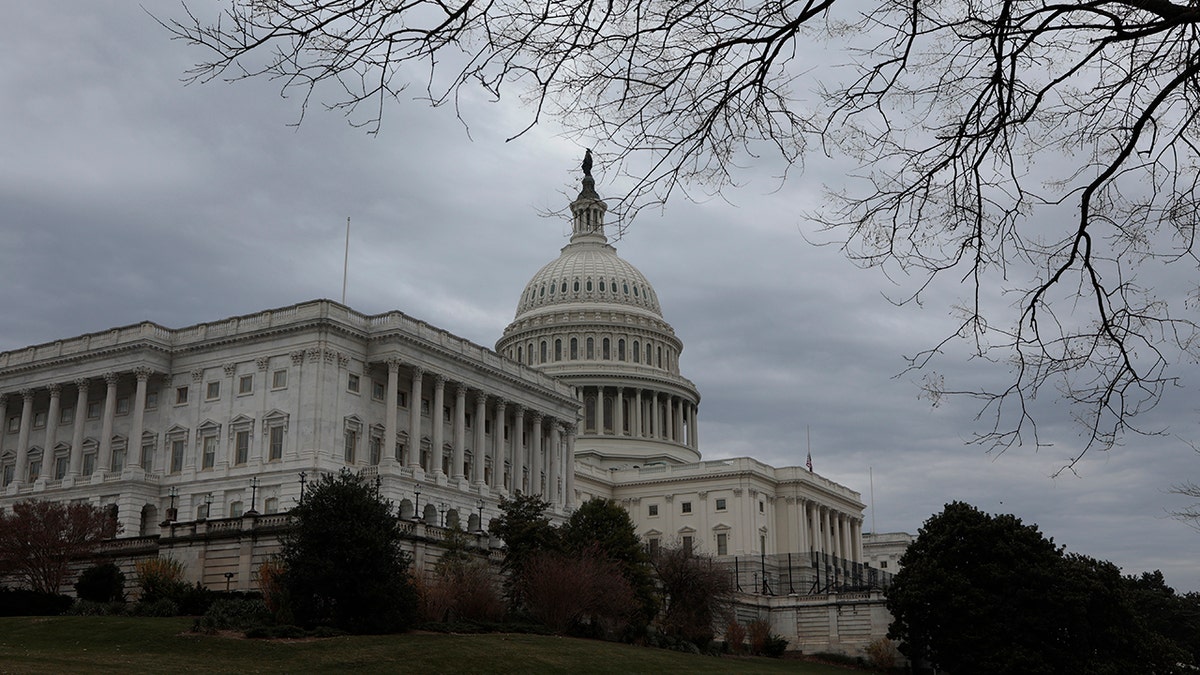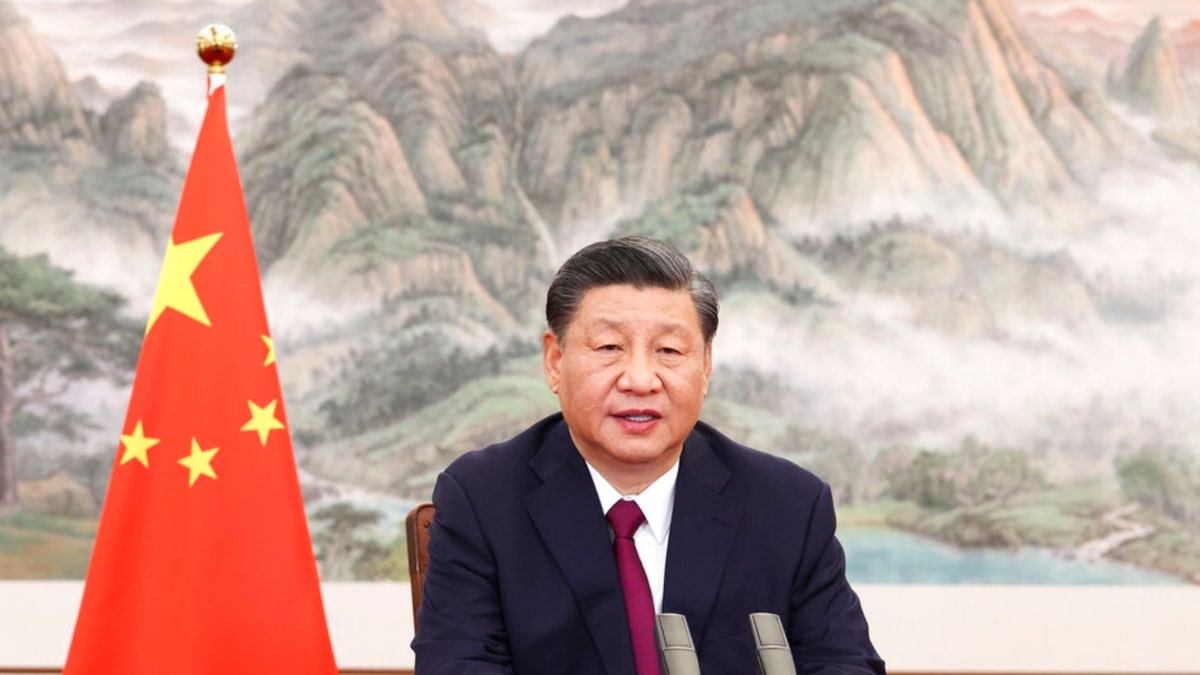Fox News Flash top headlines for December 7
Fox News Flash top headlines are here. Check out what's clicking on Foxnews.com.
FIRST ON FOX: A top conservative organization is warning that a key immigration bill, which is expected to be voted on in the House as soon as Wednesday, could open the door for a greater national security threat from the Chinese communist regime -- and is urging lawmakers to vote against the bill as a result.
The House is expected to vote on the Equal Access to Green Cards for Legal Employment (EAGLE) Act Wednesday afternoon, during the lame duck session of Congress ahead of the Republicans taking the House next year.
The bill, which deals with legal immigration, would remove per-country caps on the numbers of employment-based green cards available to nationals as a way to end an enormous backlog of green card applications. It would also increase the cap on family-based visas from 7% to 15%.
Most employment-based green cards are applied for from workers already in the U.S. on temporary visas, but due to the large number of Chinese and Indian nationals brought in by U.S. companies on those visas, nationals from those two countries face the largest backlogs.
LABOR SECRETARY WALSH WARNS OF ECONOMIC ‘CATASTROPHE’ IF CONGRESS DOESN'T PASS IMMIGRATION REFORM

The House could vote on the EAGLE Act as early as Wednesday. (Anna Moneymaker/Getty Images)
Immigration hawks have opposed the legislation, arguing that it would lead to a dominance of the immigration system by immigrants from China and India at the expense of other countries.
Heritage Action is urging lawmakers to vote against the bill, highlighting in a key vote text – along with other objections – what it says is a potential security risk from expanding green card access to Chinese nationals.
"The most substantial impact of removing country caps is providing a greater avenue for the Chinese Communist Party (CCP) to increase its theft of America’s intellectual property," the conservative group says in a key vote text, obtained first by Fox News Digital.
"The CCP poses the greatest global threat to the United States, our interests, and our values. The CCP’s influence over its people means that an influx of Chinese workers into the U.S.—particularly in the high-tech space where many of these workers would end up—represents a threat to our national security," it says.
The legislation acknowledges this potential risk by barring those who are members of the CCP from obtaining a H-1B visa (a visa for high-skilled immigrants used heavily by the tech industry.) However, Heritage cites stats that less than 7% of the Chinese population is a formal CCP member.
"This amendment is inadequate, as it does not cover non-immigrant temporary visas, like students, who also pose security risks," it says.
"The CCP views every citizen as an instrument to serve the party, and they encourage and apply leverage against many of their citizens working and studying abroad to continue that theft. Passing legislation that would massively increase the number of Chinese national visa holders is a bad idea at this time," the text says. "Importantly, these visas would come at the expense of visa holders from other countries, where there is no such concern of communist espionage."
Ryan Walker, vice president of government relations for Heritage Action, told Fox News Digital, that the organization was particularly concerned about the potential for abuse when it comes to Chinese nationals currently on student visas.
COLOMBIA CALLS FOR DEPORATION PROTECTION FOR NATIONALS LIVING ILLEGALLY IN US
"We've seen some of the activity of Chinese nationals and CCP members within our university systems," he said. In fact, some universities have had federal agencies come in and contact them and talk to them about espionage concerns within their research departments and otherwise of those folks that may be here on student visas and doing basic research at our core universities and then taking that that intellectual capital back to China and utilizing the state enterprise system that the Chinese government has stood up to essentially steal intellectual capital from the United States."
The concern about the Chinese security threat is just one objection immigration hawks have had to the legislation, which has bipartisan support in both chambers.
Supporters of the bill have noted that the legislation does not increase the overall numbers of green cards available, only changes the accessibility of the visas.
"As currently written, these changes would take effect over a nine-year transition period to ensure that no countries are excluded from receiving visas while the per-country caps are phased out," the White House’s Office of Management and Budget said in a statement of support, in which it said the bill would improve the immigration system and "ease the harsh effects of the immigration visa backlog."

Chinese president Xi Jinping pictured delivering a speech in April. Heritage Action is warning lawmakers that a key immigration bill could open the door for a greater national security threat from the Chinese communist regime. (Huang Jingwen/Xinhua via AP)
Supporters have also argued that scrapping per-country caps means that visas will be awarded based on merit rather than birthplace. They have also pointed to reforms to the visa process, including a Department of Labor website that would require employers to advertise their jobs to American workers first, and a bar on advertising jobs as only available to H-1B workers.
However, conservative groups have argued that the bill would not eliminate the backlog, but only incentivize more applications due to the drop in wait times for a green card.
"So while the backlog currently affects only a few countries, the EAGLE Act will ensure that the backlog burdens all countries," the Federation for American Immigration Reform said in a recent analysis. "In short, the EAGLE Act will wreck the employment-based immigration system for applicants from the rest of the world for the sole purpose of shifting more green cards to India and China."
CLICK HERE TO GET THE FOX NEWS APP
Similarly, Heritage Action says the bill is coming at a time when tech companies, which back the bill, are announcing layoffs and hiring freezes.
"Congress should not be radically changing the U.S. visa system in a lame duck, especially not when the result will be massive chain migration, compromised national security, and reduced job opportunities for Americans," the organization says.
Meanwhile, the bill has also seen opposition from Democratic lawmakers.
Rep. Yvette Clarke, D-NY, warned this week in a letter to members of the Congressional Black Caucus that eliminating the country caps without a corresponding increase in visas would "result in a dearth of immigration opportunities for hopeful migrants outside these nations, with particular concern for those from African and Caribbean nations."
"This legislation comes up short in my estimation and I cannot support efforts that would perpetuate the current inequalities in our immigration system. I believe we can do better," she wrote.






















